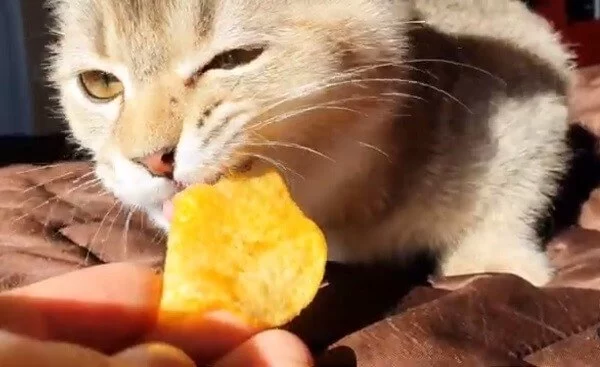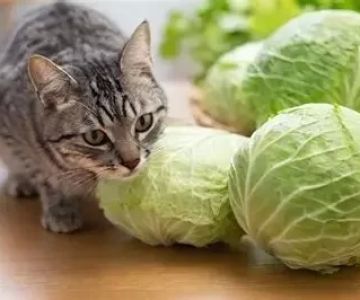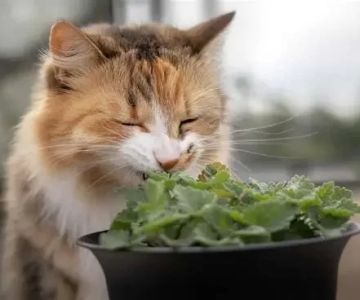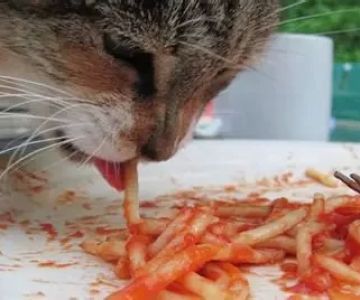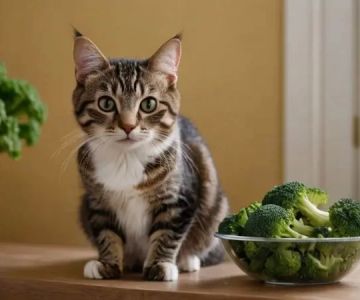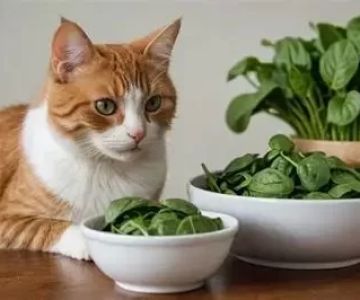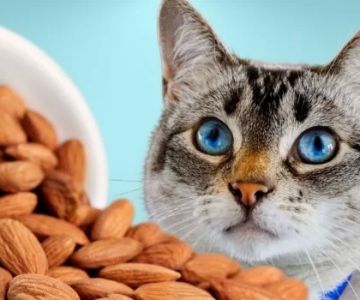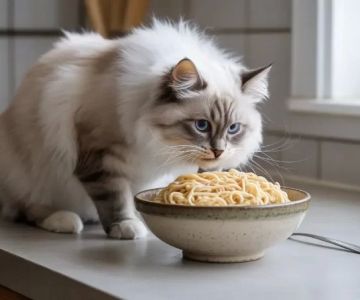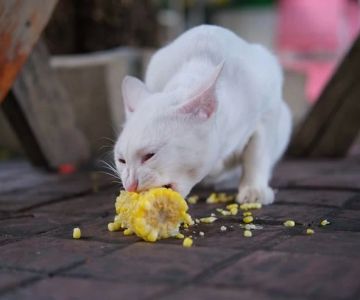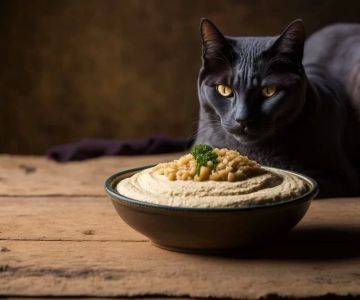- Can Cats Eat Corn Chips
- 1 - What Makes Corn Chips Unhealthy for Cats
- 2 - Understanding What Happens If Your Cat Eats Them
- 3 - Real Cases of Cats Eating Corn Chips
- 4 - Safer Alternatives for Snack-Loving Cats
- 5 - What to Do If Your Cat Eats Too Many Corn Chips
- 6 - Expert Tips From Hidden Brook Veterinary
Can Cats Eat Corn Chips
It’s a scene many cat owners recognize—you're enjoying a salty bowl of corn chips, and suddenly your feline friend looks up at you with those pleading eyes. It’s tempting to share a bite, but can cats eat corn chips safely? The short answer is: not really. While one or two chips may not cause immediate harm, the ingredients in corn chips can pose risks to your cat’s long-term health. This article explores why corn chips aren’t a healthy choice for cats, what happens if they eat them, and which snacks are safer options.
1 - What Makes Corn Chips Unhealthy for Cats
1.1 - High Salt Content
Salt is one of the main reasons corn chips are dangerous for cats. Unlike humans, cats have a much lower tolerance for sodium. Even small amounts can cause dehydration, elevated blood pressure, and in severe cases, sodium ion poisoning. Cats that consume salty snacks like corn chips may show signs of thirst, lethargy, and vomiting within hours.

5175 Peachtree Pkwy Suite 1300-B, Peachtree Corners, GA 30092, USA
See Details1.2 - Seasonings and Artificial Flavors
Many corn chips are loaded with artificial seasonings—onion powder, garlic flavoring, and chemical preservatives. Both garlic and onion are toxic to cats, even in trace amounts. They can damage red blood cells, leading to anemia and fatigue. Artificial flavor enhancers like MSG (monosodium glutamate) are also harmful and can trigger digestive upset or neurological symptoms in sensitive cats.
1.3 - Excess Fat and Empty Calories
Corn chips are deep-fried or baked in oils that are far too rich for a feline diet. Cats require animal-based fats, not vegetable oils. High-fat, carbohydrate-heavy foods can contribute to obesity, liver problems, and pancreatitis. While your cat might love the crunchy texture, their body simply isn’t designed to process such greasy snacks.
2 - Understanding What Happens If Your Cat Eats Them
2.1 - Short-Term Effects
If your cat sneaks a corn chip or two, they might experience mild digestive discomfort—such as gas, soft stools, or increased thirst. While this may pass quickly, it’s still a sign that their body is struggling to handle ingredients it wasn’t meant to process.
2.2 - Long-Term Health Risks
Regularly sharing human snacks like corn chips can have lasting consequences. Continuous salt intake stresses the kidneys, while processed oils can contribute to cholesterol buildup and weight gain. Over time, these can lead to chronic health issues like kidney disease and heart complications. Cats thrive on protein-based diets, not carbohydrates and sodium.
3 - Real Cases of Cats Eating Corn Chips
3.1 - The "Dorito Cat" Incident
In one online story, a cat owner admitted their pet became “addicted” to cheese-flavored corn chips. The cat would beg every time the bag crinkled. Within months, the feline gained significant weight and started having digestive problems. A vet visit confirmed that excessive salt and artificial cheese flavoring were to blame for the symptoms.
3.2 - A Curious Kitten’s Crunchy Mistake
Another owner shared how their kitten ate a broken piece of plain corn chip from the floor. Although the kitten seemed fine initially, it developed vomiting and fatigue later in the evening. A vet determined that the sodium content was too high for the kitten’s size and advised close monitoring for dehydration.
4 - Safer Alternatives for Snack-Loving Cats
4.1 - Crunchy Cat Treats
If your cat enjoys crunchy textures, there are many feline-safe alternatives. Opt for treats made from real meat or fish, with minimal fillers. These mimic the crunch of corn chips without the harmful additives. Look for high-protein snacks that support dental health as well.
4.2 - Homemade Bites
Homemade cat treats are another safe and rewarding option. Simple recipes using cooked chicken, tuna, or salmon can be baked into bite-sized morsels. Not only are they healthier, but they also allow you to control what your cat eats—no hidden salt, oils, or preservatives.
4.3 - Cat-Friendly Human Foods
Some human foods are safe for occasional sharing—such as plain boiled chicken or small pieces of cooked egg. Always avoid anything fried, spiced, or heavily salted. Cats should get their nutrition primarily from their regular diet, but a small protein treat now and then is perfectly fine.
5 - What to Do If Your Cat Eats Too Many Corn Chips
5.1 - Monitor for Symptoms
If your cat consumes a few corn chips, monitor them for unusual behavior—excessive thirst, vomiting, diarrhea, or lethargy. These may indicate salt overload or digestive distress. Make sure your cat has plenty of fresh water available to help flush out sodium from their system.
5.2 - When to Contact a Vet
Contact your veterinarian if symptoms persist beyond a few hours or worsen. Severe salt poisoning requires professional treatment, including IV fluids and electrolyte monitoring. Quick action can prevent long-term kidney damage. At Hidden Brook Veterinary, we often see similar cases and advise owners to keep salty snacks out of reach of curious pets.
6 - Expert Tips From Hidden Brook Veterinary
6.1 - Prevention Is the Best Care
The easiest way to protect your cat is prevention. Keep snack foods securely stored and educate family members not to share chips or processed foods. Even small “treats” can gradually harm your cat’s health.
6.2 - Creating a Balanced Diet
Consult a veterinarian to ensure your cat’s diet meets all nutritional needs. Balanced commercial cat foods already provide everything your pet needs—extra snacks should never replace meals. If you want to reward your cat, choose vet-approved treats that fit into their calorie limit.
6.3 - Promoting Positive Habits
Replace food-based bonding with interactive play or grooming sessions. Cats enjoy attention as much as snacks, and healthy engagement builds trust without dietary risks. At Hidden Brook Veterinary, we encourage owners to focus on enrichment activities for overall well-being.
So, can cats eat corn chips? Technically yes—but they shouldn’t. These crunchy snacks are made for humans, not felines. By understanding the risks and choosing better alternatives, you’ll keep your cat healthy, happy, and safe for years to come.

